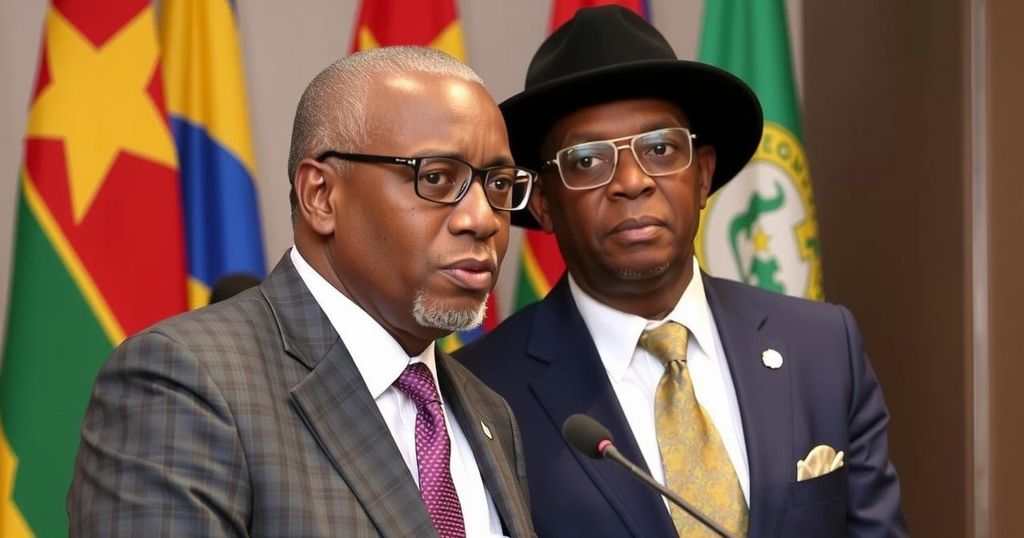Rwanda-DR Congo Peace Talks Canceled Amidst Rising Tensions and Violence

The peace negotiations between Rwanda and the DRC have been called off due to a deadlock regarding a Rwandan demand for direct talks with the M23 rebels. The Angolan presidency, which mediated the discussions, announced the cancellation without providing specific reasons. As violence escalates in the region, the urgency for effective dialogue and resolution intensifies, amid ongoing humanitarian crises affecting millions.
Peace negotiations between Rwanda and the Democratic Republic of the Congo (DRC), aimed at addressing ongoing conflicts in the eastern regions, have been abruptly canceled, as reported by the Angolan presidency, which acted as a mediator. Mario Jorge, media officer for the presidency, announced that the summit would not proceed as previously scheduled, citing unexpected developments without providing further details. Rwandan President Paul Kagame was anticipated to attend the talks alongside DRC leader Felix Tshisekedi, though it remains unclear if he was present in Angola.
The discussions faced significant obstacles, primarily related to a Rwandan request for the DRC to engage directly with the M23 rebel group. This demand led to a deadlock in negotiations, with violence intensifying prior to the talks. The DRC army accused M23 of civilian casualties, although M23 representatives refuted these claims, labeling them as government propaganda. The situation in eastern DRC remains dire, with approximately seven million individuals displaced by ongoing hostilities.
Despite Rwanda’s denial of supporting M23 rebels, reports have indicated a considerable presence of Rwandan military forces in the DRC, allegedly aimed at safeguarding national security interests against perceived threats from the DRC military. A ceasefire agreement, signed earlier this year, has proven ineffective as violence persists, raising concern among international observers.
Local residents, such as Aline Kasereka, emphasize the urgency for meaningful dialogue, expressing a collective weariness for peace. The repeated failures of peace initiatives underscore the complex dynamics at play in the region, where numerous armed factions vie for control amidst a severe humanitarian crisis.
The tensions between Rwanda and the DRC have long historical roots, exacerbated by the presence of numerous militia groups in the eastern DRC. M23, a prominent rebel faction allegedly backed by Rwanda, has been accused of seizing territory and committing atrocities. The region is characterized by a complex web of political and military relationships, underscoring the importance of inclusive dialogue to address these deeply entrenched issues. With international mediation efforts faltering, millions of civilians continue to suffer the consequences of the ongoing conflict, drawing the attention of humanitarian organizations and global powers alike.
The cancellation of the peace talks between Rwanda and the DRC highlights the fragility of negotiations in the wake of unresolved grievances and ongoing violence. As both nations grapple with complex security dynamics, the plight of civilians remains a pressing concern. The necessity for renewed dialogue and a comprehensive approach to address the root causes of conflict is imperative to restore stability and peace in this volatile region. Failure to achieve a lasting resolution could result in continued humanitarian disasters and regional instability.
Original Source: www.aljazeera.com








